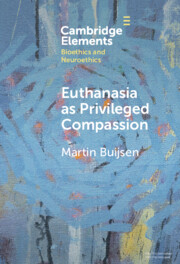Objective: This study investigated the palliative options
available when a patient requested euthanasia or physician-assisted
suicide (EAS), the extent to which the options were applied, and changes
in the patient's wishes.
Methods: In an observational study, 3614 general
practitioners (GPs) filled in a questionnaire and described their most
recent request for EAS (if any) (n = 1,681).
Results: Palliative options were still available in 25% of
cases. In these cases options were applied in 63%; in 46% of these cases
patients withdrew their request. Medication other than antibiotics, which
was most frequently mentioned as a palliative option (67%), and applied
most frequently (79%), together with radiotherapy, most frequently
resulted in patients withdrawing their request.
Significance of results: GPs include the availability of
palliative options in their decision making when considering EAS. The fact
that not all options are applied or, if applied, the patient persists in
the request is related to autonomy of the patient, the burden on the
patient, and medical futility of the option.
